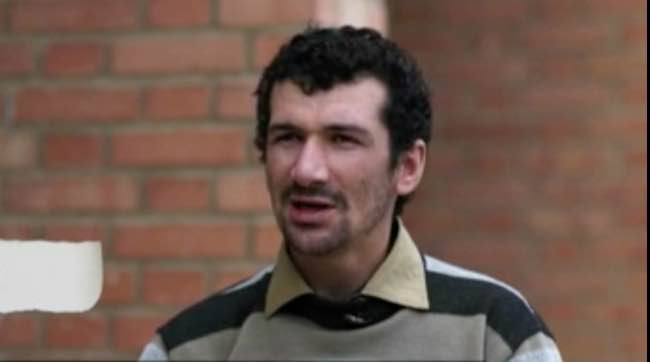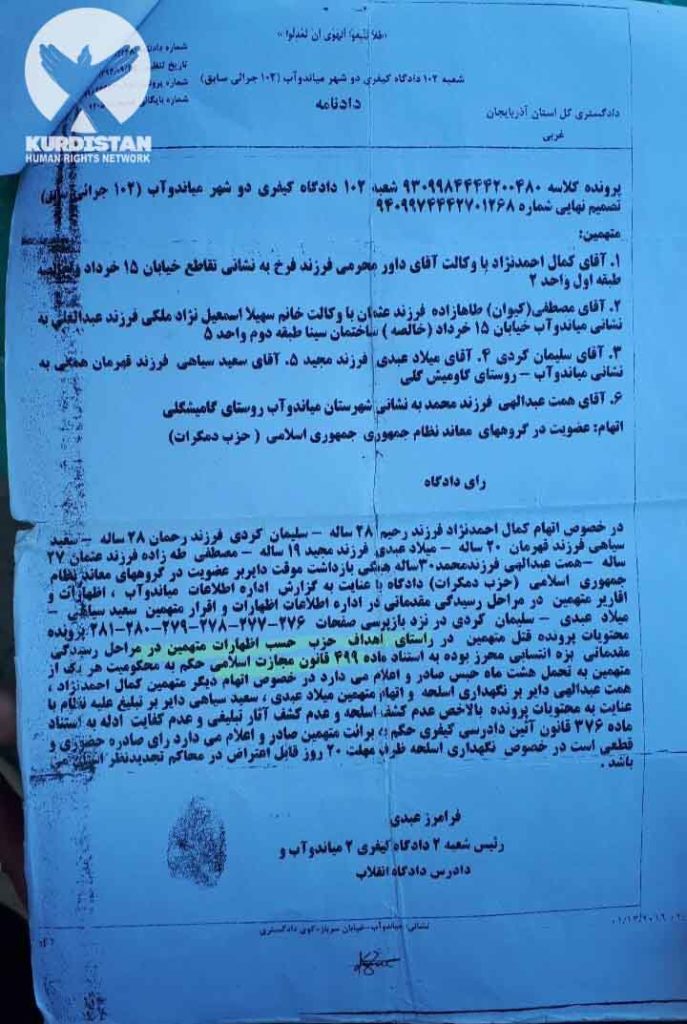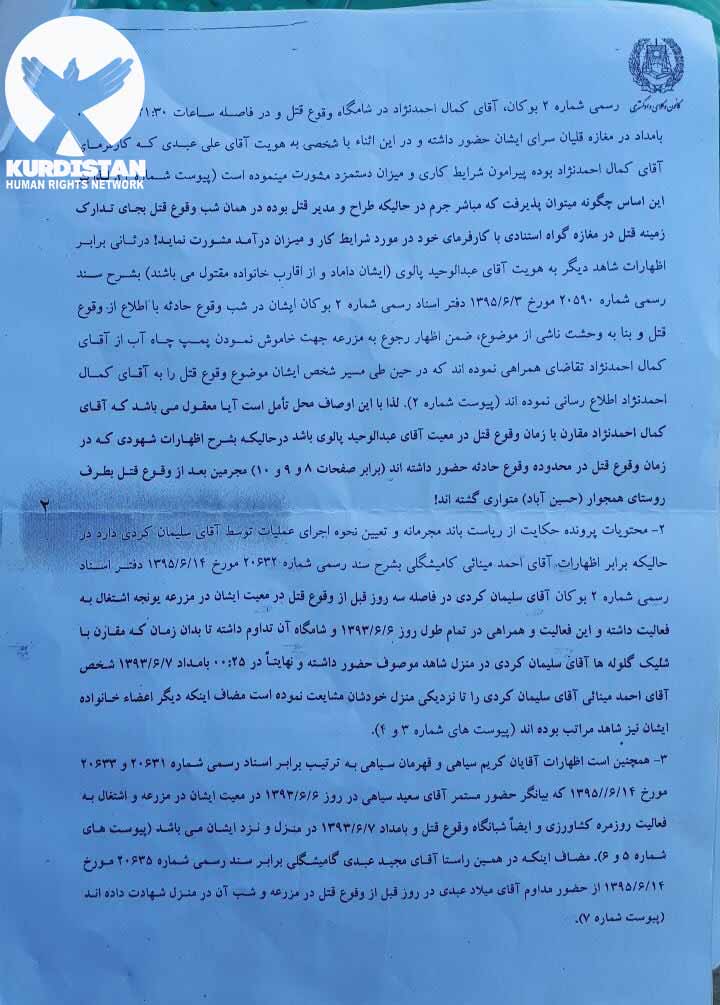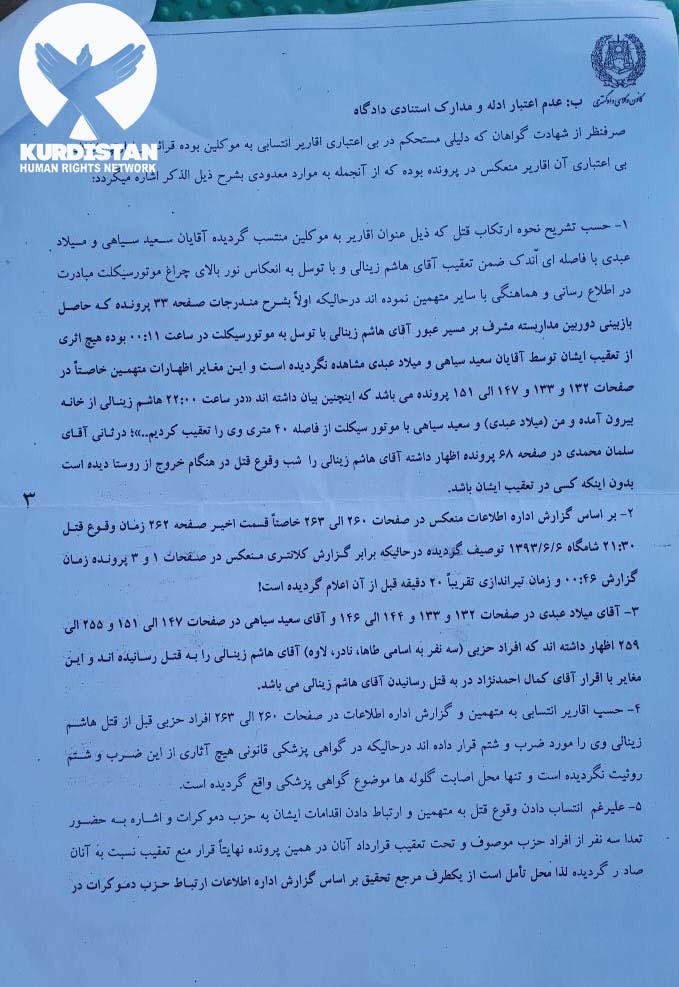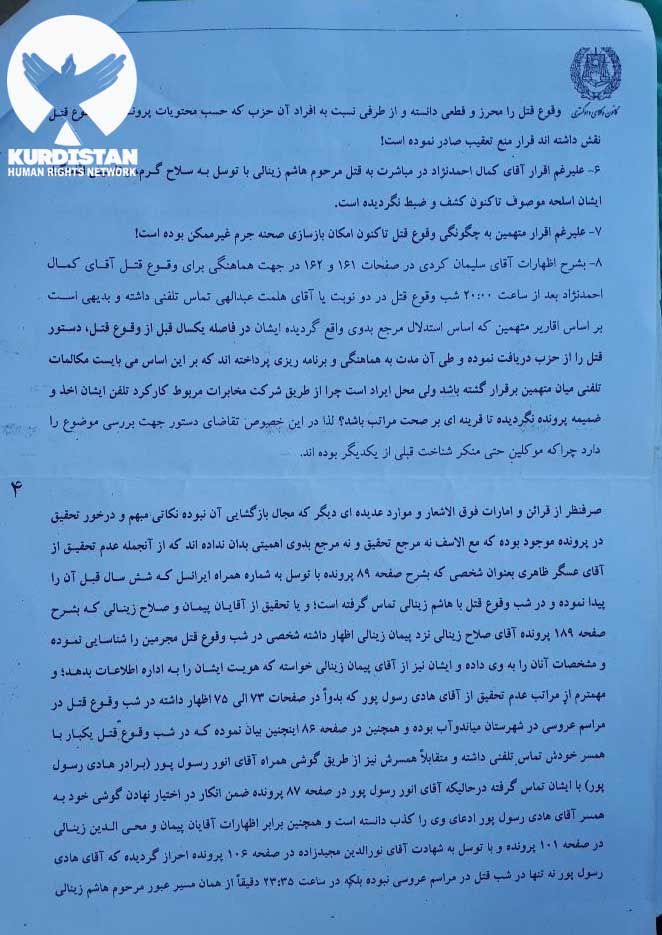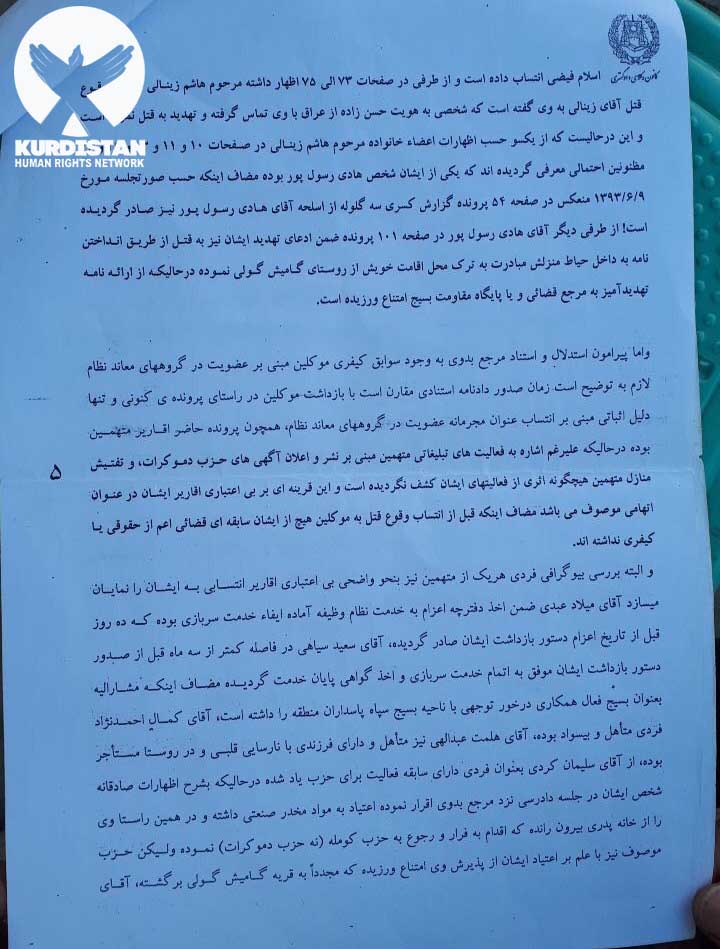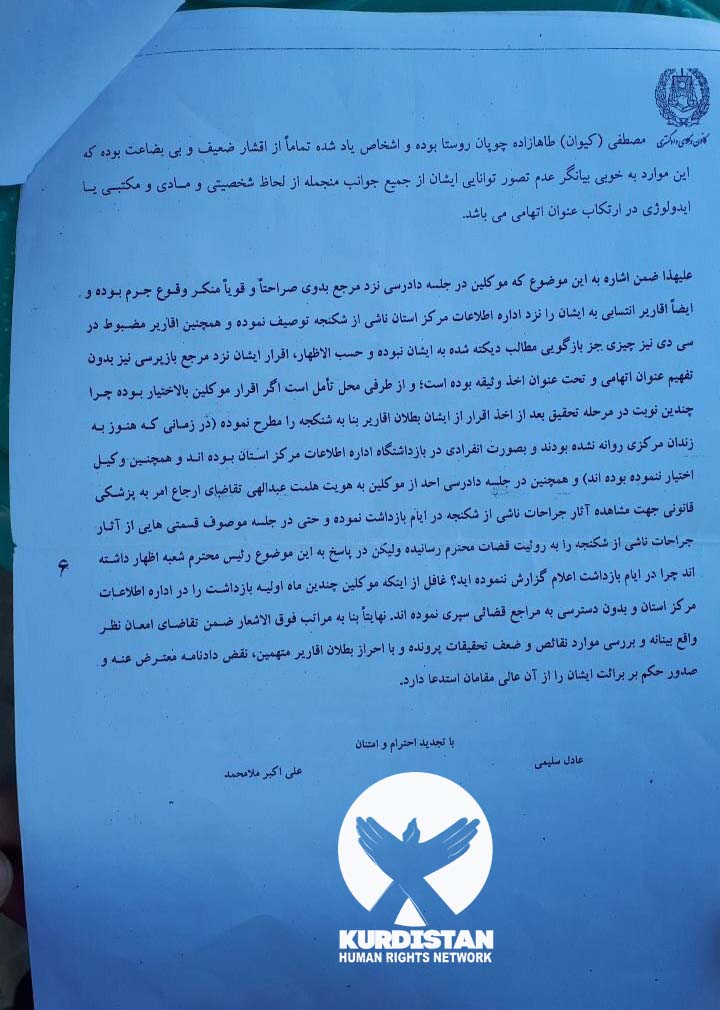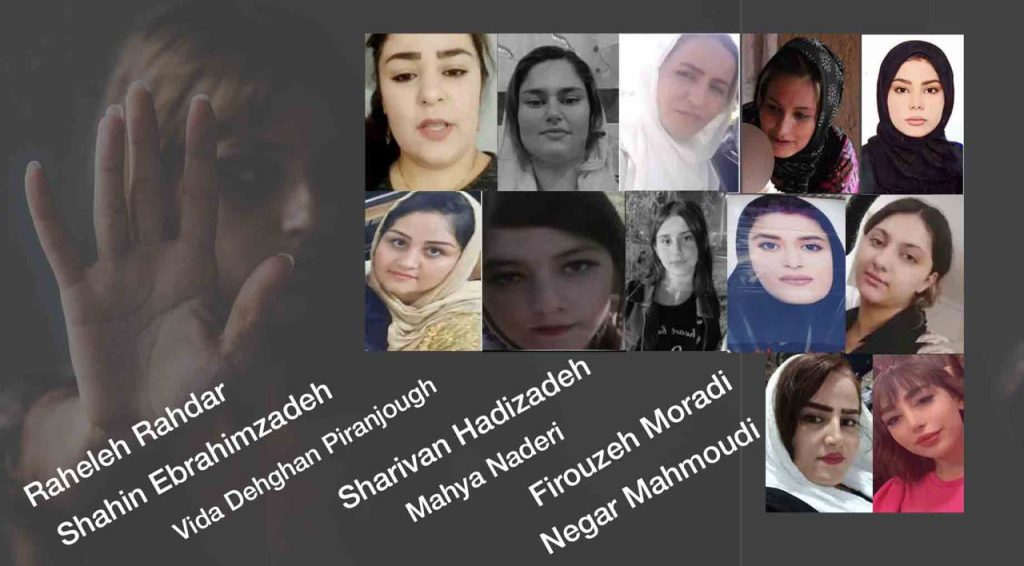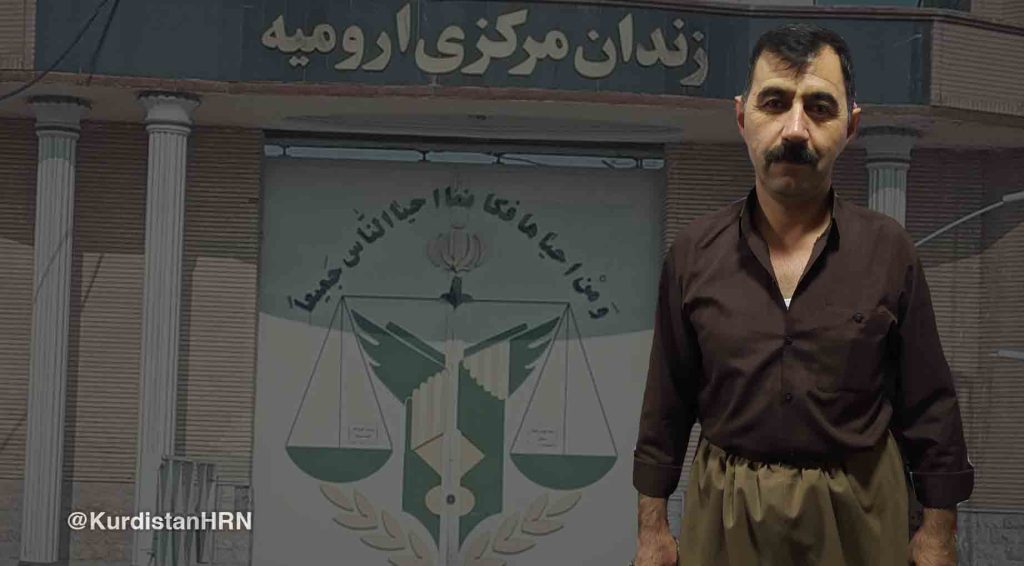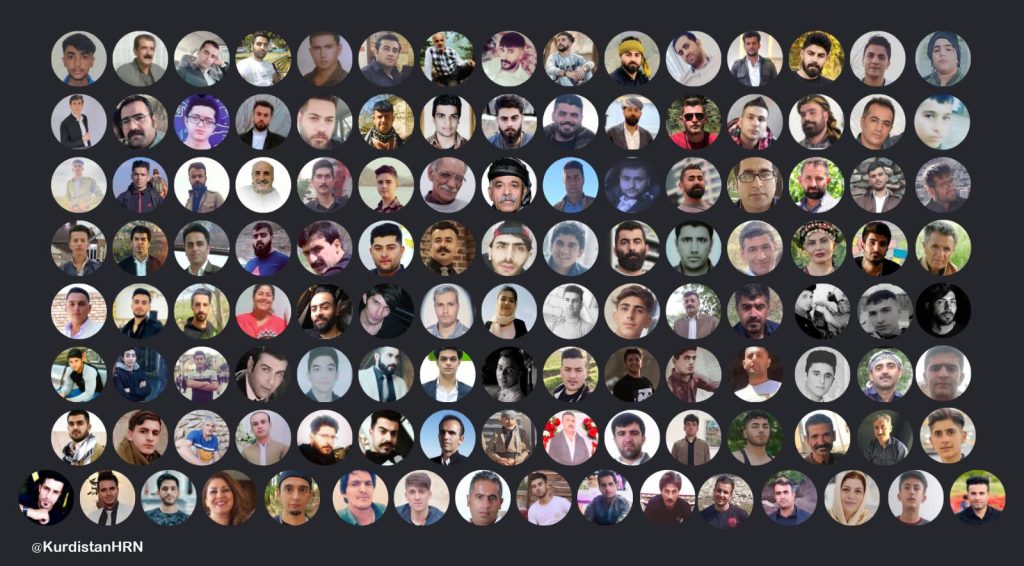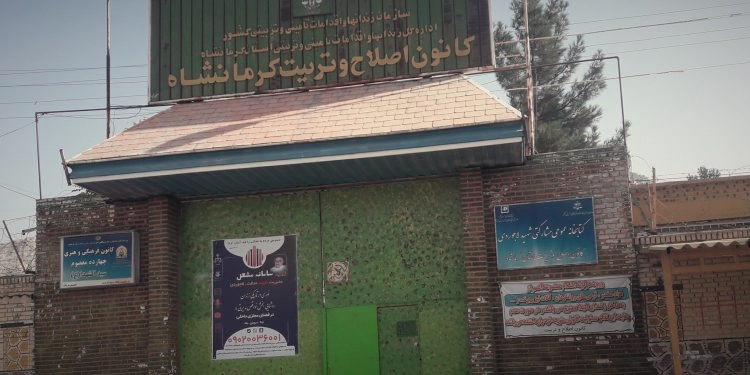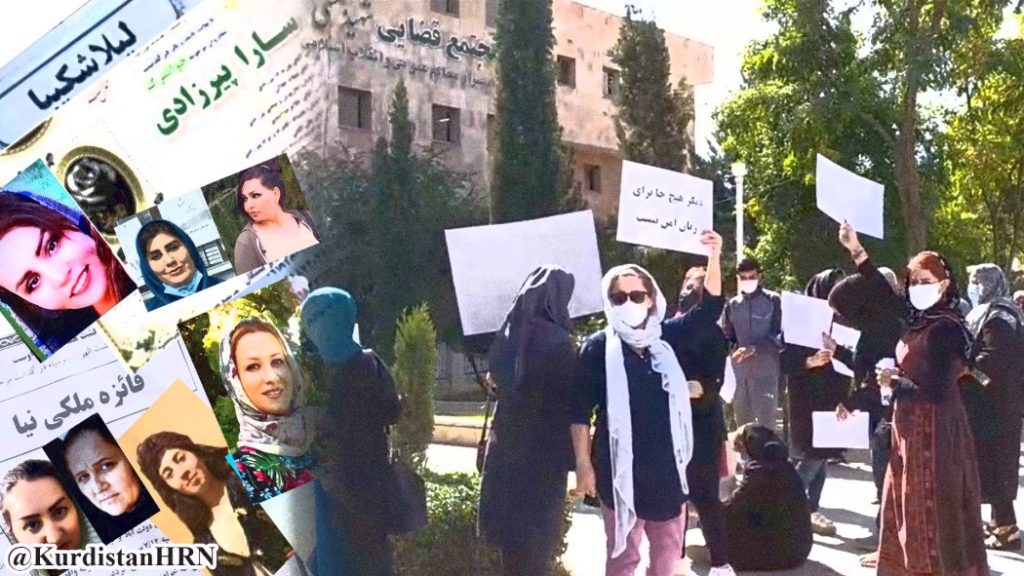Three years ago, Iran executed Kurdish political prisoner Kamal Ahmadnezhad in Miandoab Central Prison in West Azerbaijan province on 10 September 2018.
The Kurdistan Human Rights Network (KHRN) had previously collected and published details on the arrest, torture under detention, court process, and execution of Kamal Ahmadnezhad.
These details are republished in this report on the occasion of the anniversary of his execution.
Arrest, false charges, unfair trial
In the autumn of 2014, Iranian security forces arrested Kamal Ahmadnezhad and five other civilians named Halmat Abdollahi, Soleiman Kori, Milad Abdi, Saeid Siyahi, and Mostafa Tahazadeh.
They were accused of “murdering” a member of the Iranian paramilitary Basij forces named Hashem Zeynali.
The Ministry of Intelligence interrogated and tortured the six civilians in solitary confinement in Orumiyeh, West Azerbaijan province, for six months.
Security forces then transferred the detainees to Miandoab Central Prison.
In another case in 2015, a court sentenced them to eight months in prison for “collaborating with a Kurdish party”.
When five of the detainees were notified of the sentence, they did not have enough time to appeal against it.
Only one of the detainees, who could appeal against the sentence within the specified time, was acquitted in an appeals court.
In August 2018, the defendants’ trial for the “murder” of a member of the Basij was held in Branch 1 of the Criminal Court of Miandoab.
Although there were witnesses whose testimonies could prove that the defendants were not present at the scene of the murder on the day the Basij member was killed, the court did not summon them.
Moreover, without considering the lawyer’s defence, the court sentenced Kamal Ahmadnezhad to “retribution in kind” (qisas) as the primary defendant. It condemned the five others to 15 years in prison on charges of “complicity in murder”.
The sentences were handed down while Kamal Ahmadnezhad had repeatedly asserted his innocence in numerous conversations with the Kurdistan Human Rights Network (KHRN) over the last few years before his execution.
He told the KHRN that the Ministry of Intelligence and the Islamic Revolutionary Guard Corps (IRGC) pressured officials to carry out his death sentence.
Letter to the UN Special Rapporteur on Human Rights in Iran
In January 2017, the executed political prisoner published an open letter addressing the UN Special Rapporteur on Human Rights in Iran.
He spoke about his detention process as well as enduring various forms of torture in the detention centre of the Ministry of Intelligence to make on-screen confessions and explain the reasons for his sentence.
“I did not know at all why I was arrested”, said the letter, which clearly states that the allegations were fabricated and ordered by the Ministry of Intelligence.
He also wrote about the situation in prison and the torture he endured:
“I was interrogated and tortured in solitary confinement by the Ministry of Intelligence for six months. Cells with the colour of dread and fear. In fact, the purpose of these cells was to create an atmosphere of fear and despair and to surrender one’s will. The solitary confinement cells of the detention centre of the intelligence ministry turn every citizen into a criminal. I was no exception to this rule. I was subjected to physical, mental, and psychological torture for six months. My torturers and interrogators only wanted to identify me as a murderer. Slowly, I realized that I was in detention with five other civilians from Gavmish Goli village [of Miandoab]. Three of them were arrested two months before me. I was occasionally tortured. I wished for death a hundred times a day. I was completely mentally ill, oh why me?”
Prison officials prepared transcript of forced confession
In the letter, Kamal Ahmadnezhad said the reasons for his confession to the murder of a Basiji man were the severity of the torture and ill-treatment he had endured in prison for months.
In addition to admitting the charges against him, the torture ultimately forced him to conduct a television interview with the state-funded Press TV and confess to what he had, in fact, no knowledge of.
Tortures he endured daily include beatings, flogging with cables, electric shocks, family threats, and verbal abuse.
While the denial of the charges increased the severity and duration of his torture, he was eventually forced to accept them entirely.
In connection with his interview with Press TV, Kamal Ahmadnezhad revealed that prison officials had already prepared the interview transcript. They had asked him to memorize the text of the letter by practising and repeating it.
Although he refused it several times, he was eventually tortured and forced into doing it.
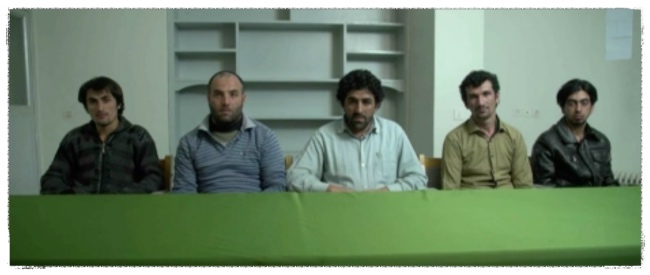
Image taken from forced confessions on Press TV
Death penalty based on ‘forced confessions’ – defendant’s lawyers
Despite his complete denial of the charges, Kamal Ahmadnezhad’s death sentence was carried out on 10 September 2018.
Defence lawyers pointed to the lack of evidence against the defendants. They emphasized that the death sentence was issued only based on forced confessions under torture in the detention centre of the ministry of intelligence.
Below are images of the verdict of the court and the defence of the lawyers in Persian.

